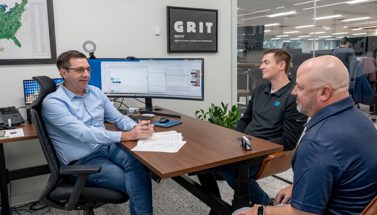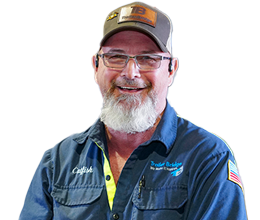
Ignoring the Instinct to Hit the Brakes
You know that moment when the traffic light in front of you goes from green to yellow? In a split second you must analyze the situation and determine if you need to hit the brakes or if you’re in that sweet spot where a little acceleration will get you through and on to your destination.
I’d venture to say that today’s current market conditions have left you in a similar predicament where you are asking yourself, ‘should we hit the brakes?’
After 25-plus years in this industry, my philosophy is to ignore the instinct to tap the brakes during challenging times like this and remain focused on the strategy of serving our people, our customers and growing the business.
While some may argue it’s a risky approach – much like going through that yellow light – it’s one that has proven successful in my career, and the careers for many others.
You see while others are pulling back on their investments, letting employees go and hitting pause on the new technology rollout; at Trailer Bridge, we are doing the opposite. Why? Because our reaction to the right now will have a direct correlation to our future success.
My approach is rooted in service and here’s why.
Serve Your Employees
The current freight market is not easy – it’s actually really hard and frustrating – not to mention the personal stresses our employees are facing. Now is the time we show up, say thank you and invest in their potential. This may look like offering training for their current role or their next step or just a small gesture of gratitude lunch, dinner or in a recent case here at TB a family beach party.
Our employees are the front line of our business – when we treat them with care and value their contributions, they in turn will show our customers the same care and respect.
Serve Your Customers
This industry is cyclical which means while freight volumes may be down right now, the tides will turn, and we will see an uptick in volumes. The big question is when – right?
The needs of your current prospects and customers may look different, show up anyway. Visit them, schedule lunch or dinner, and offer your experience and know-how to help solve problems.
Be committed to building the relationship even if it doesn’t equate to an immediate influx in business. Investing in the relationship is how you build trust and it’s that trust that will have your customer looking to you to move their freight when the market turns.
More importantly, serve your customers by continuing to invest in your business to grow and evolve to better show up for them. During a global pandemic, Trailer Bridge added more logistics offices, an international division and a team committed to government freight. Why? Because our customers expressed a need.
Today, our international division, Trailer Bridge International, is growing faster than before and it’s because we showed up for our customers in the way they needed and delivered exceptional customer service – even in a time of extreme uncertainty.
Serve Your Community
I’d also like to add, don’t pull back on the commitment to supporting your local community nonprofits. Those groups are serving your neighbors and they need our support now more than ever. Just like us, they are feeling the impacts of the economic downturn despite an increase in need across our nation.
My directive at TB this year was to increase community giving, and to focus those efforts on supporting the causes and local groups our employees feel passionate about serving.
I firmly believe we as humans need genuine connection with others. Our industry needs human intelligence and relationships to be successful despite the advancement of AI and autonomous technology.
We build those relationships, that connection through service. So, when your instinct is to pull back and hit the brakes, fight the urge and keep your foot on the accelerator, you may be surprised that you’ll find yourself on the other side of the intersection better off than before.
As seen in the July Issue of Logistics Management.




